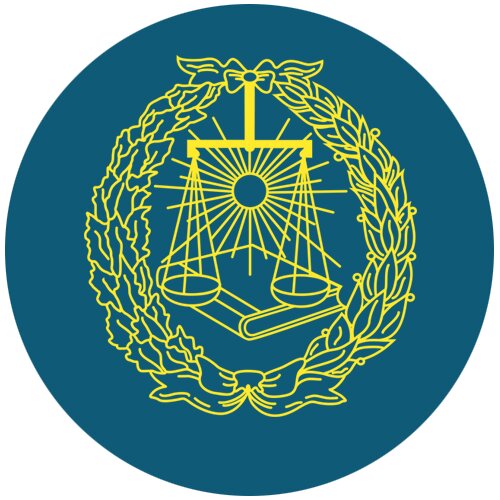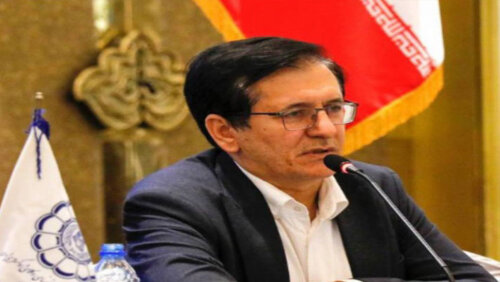Best State, Local, and Municipal Law Lawyers in Iran
Share your needs with us, get contacted by law firms.
Free. Takes 2 min.
Or refine your search by selecting a city:
List of the best lawyers in Iran
About State, Local, and Municipal Law in Iran
State, Local, and Municipal Law in Iran encompasses a broad spectrum of legal frameworks and regulations that govern the powers and responsibilities of various levels of government. These laws dictate the administration of provinces and cities, guiding how government entities interact with citizens, businesses, and other governmental bodies. The legal system in Iran is primarily based on Islamic law, which influences many aspects of governance and public administration. Understanding these laws is essential for those looking to engage with government processes, resolve disputes related to municipal services, or comply with local regulations.
Why You May Need a Lawyer
Various situations may necessitate seeking legal advice when dealing with state, local, and municipal law in Iran. Common scenarios include:
- Disputes over property use or zoning regulations.
- Issues involving local tax obligations or fines.
- Challenges in acquiring permits or licenses required for businesses.
- Legal processes involving municipal services such as utilities or public works.
- Navigation through the complexities of housing regulations or tenancy laws.
- Enforcement issues related to local ordinances.
Legal professionals can provide invaluable guidance in these situations, ensuring compliance with regulatory requirements and offering representation in legal proceedings if necessary.
Local Laws Overview
Key aspects of local laws in Iran that pertain to state, local, and municipal matters include:
- Zoning Laws: These laws determine how land and properties within certain areas can be used, impacting residential, commercial, and industrial developments.
- Municipal Taxation: Local governments may impose taxes for funding public services, with specific regulations detailing how these levies are assessed and collected.
- Public Health and Safety Regulations: Local laws often cover public health measures, building codes, and safety standards to protect community welfare.
- Cultural and Heritage Conservation: Laws aimed at preserving historic sites and cultural landmarks can influence development projects and property requirements.
- Environmental Regulations: These laws oversee environmental protection efforts at the local level, including waste management and pollution control.
Frequently Asked Questions
What is the process for challenging a local ordinance in Iran?
The process typically involves filing a legal challenge through local government channels or the judiciary. Consulting with a lawyer can provide specific guidance on procedures and possible outcomes.
How can I obtain a business permit from a local municipality?
Obtaining a business permit generally involves submitting an application with required documents, which may vary by locality. Contacting local government offices or a legal advisor can provide step-by-step assistance.
Are there laws regulating noise levels in residential areas?
Yes, many municipalities have regulations limiting noise to promote community well-being. These laws stipulate acceptable noise levels and hours, and violations may result in fines.
What steps should I take if I receive a municipal fine I believe is unjust?
Initiate a formal appeal through the appropriate local government department. Providing evidence or documentation supporting your case can enhance your appeal.
Can local governments in Iran enact laws independently?
Local governments have limited autonomy to enact laws, often requiring alignment with national regulations and Islamic principles.
What is the role of the Basij in local law enforcement?
The Basij, a paramilitary organization, often aids local law enforcement in maintaining public order and enforcing Islamic codes of conduct.
How are zoning disputes typically resolved?
Zoning disputes can be resolved through negotiation, administrative reviews, or legal proceedings, often requiring expert legal consultation.
Is there a process for public consultation on new local laws?
Public consultations may occur depending on the municipality. Engaging with local councils and attending public meetings can offer insight into this process.
What legal avenues exist for addressing municipal service delivery failures?
Citizens can lodge complaints with the respective municipal office or pursue legal action if the issues persist unaddressed.
How do local governments manage public land use?
Public land use is governed by specific policies and zoning regulations, guided by development plans that consider community needs and growth projections.
Additional Resources
For those seeking further information or assistance, the following resources may be beneficial:
- The Iranian Bar Association for legal representation and advice.
- Local government websites for specific municipal regulations and procedures.
- The Ministry of Interior for information on local governance policies.
- Legal aid organizations offering support for individuals with limited financial resources.
Next Steps
If you require legal assistance concerning state, local, or municipal law in Iran:
- Consider consulting with a specialized lawyer who has experience in state and municipal law.
- Gather all relevant documents and information related to your legal issue before seeking professional advice.
- Contact local government offices to understand the specific regulations and processes pertinent to your case.
- Stay informed about changes in local law that may impact your legal situation.
Taking these steps can ensure you receive informed and relevant legal guidance tailored to your needs.
Lawzana helps you find the best lawyers and law firms in Iran through a curated and pre-screened list of qualified legal professionals. Our platform offers rankings and detailed profiles of attorneys and law firms, allowing you to compare based on practice areas, including State, Local, and Municipal Law, experience, and client feedback.
Each profile includes a description of the firm's areas of practice, client reviews, team members and partners, year of establishment, spoken languages, office locations, contact information, social media presence, and any published articles or resources. Most firms on our platform speak English and are experienced in both local and international legal matters.
Get a quote from top-rated law firms in Iran — quickly, securely, and without unnecessary hassle.
Disclaimer:
The information provided on this page is for general informational purposes only and does not constitute legal advice. While we strive to ensure the accuracy and relevance of the content, legal information may change over time, and interpretations of the law can vary. You should always consult with a qualified legal professional for advice specific to your situation.
We disclaim all liability for actions taken or not taken based on the content of this page. If you believe any information is incorrect or outdated, please contact us, and we will review and update it where appropriate.
Browse state, local, and municipal law law firms by city in Iran
Refine your search by selecting a city.










